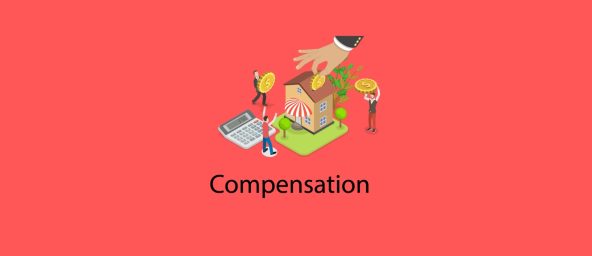
TL;DR
- Yes, you can work two jobs, but it requires planning and discipline.
- Set realistic work hours to avoid burnout.
- Prioritize sleep, diet, and exercise.
- Communicate clearly with both employers if needed.
- Know the legal limits on how many jobs you can have.
- Watch for warning signs of stress before it escalates.
Picture this. You’ve just finished an eight-hour shift, only to log into another job right after. The bills are paid, but your energy feels like it’s running on fumes. Many people step into this reality while figuring out how to work 2 jobs, especially in today’s economy, where living costs are rising faster than wages.
With the right balance, it’s possible to handle working 2 jobs without sacrificing your health or personal life. In this blog, you’ll learn practical strategies, signs to watch for, and tips for building a healthier rhythm between two roles.
Is It Really Possible to Work Two Jobs Without Burning Out?
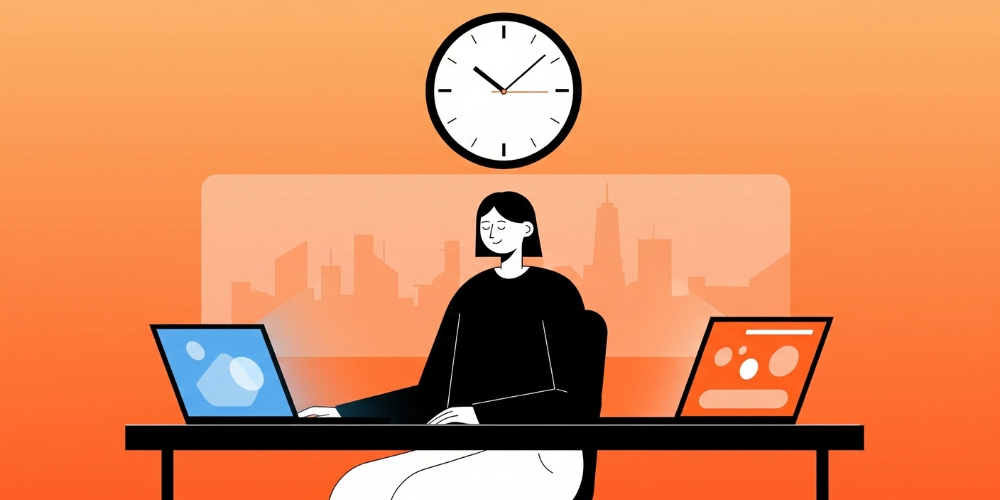
The short answer is yes. But whether can you work two jobs at the same time depends less on the roles and more on how you structure your life around them. Many professionals successfully balance how to work two jobs, especially when one role is flexible or remote.
However, is it possible to work two full time jobs? Technically, yes, but realisticall,y it comes with heavy risks. A Gallup report revealed that 76% of employees already experience workplace burnout symptoms from just one job. Doubling that workload without boundaries can quickly lead to exhaustion, health issues, and reduced productivity. That’s why most experts recommend considering how to work 2 part time jobs rather than doubling up on two demanding full-time positions.
It’s also important to remember the legal and contractual side. Some employers restrict moonlighting, so before deciding can you have two jobs, check your contract or employee handbook. Certain industries (like government, healthcare, and finance) often prohibit or limit side employment to prevent conflicts of interest. In contrast, gig economy platforms and remote freelance work make how to have 2 jobs far more accessible today than a decade ago.
10 Strategies on How to Work 2 Jobs Without Burning Out
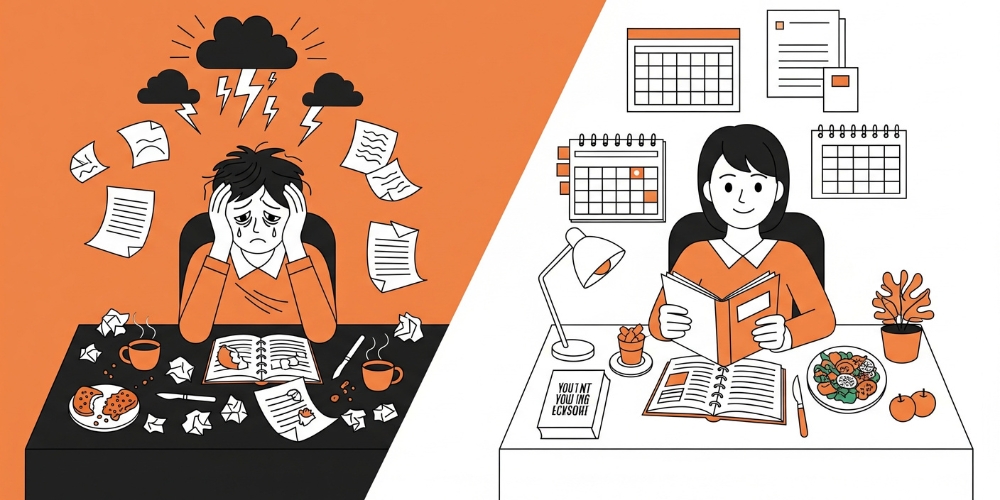
Balancing two jobs is about setting smart boundaries. These strategies will help make working 2 jobs more manageable.
1. Pick Roles That Balance Each Other
Not every pairing works. For instance, customer support plus another call-heavy role can quickly drain your energy. Instead, look for a mix that balances mental and physical effort, such as combining freelance writing with weekend retail shifts. If you’ve ever wondered what jobs pair well together, the trick is choosing roles that don’t pull on the same strengths at once.
2. Set Clear Boundaries with Employers
Before you decide, can you overlap two jobs, know that transparency matters. Some companies allow it, while others restrict it. Mismanaging overlap can lead to performance drops and possible termination.
3. Prioritize Sleep as Non-Negotiable
Skipping sleep impacts focus, immune strength, and even emotional stability. Guarding rest time is one of the most important parts of how to work 2 jobs sustainably.
4. Build a Structured Schedule
If you’re figuring out how to work two jobs, start with a time map. Block off hours for both roles, commute, meals, and sleep. A visual calendar helps you spot conflicts before they pile up. Without a structure, burnout sneaks in quickly.
5. Use Energy, Not Just Time, as a Guide
Managing how to have 2 jobs is about energy flow. Put your highest-focus tasks at times you’re naturally alert, and save lighter work for when your energy dips.
6. Keep Finances Front and Center
Many people pick up a second role to cover rising expenses. But if working 2 full time jobs is only increasing your stress, the math may not add up. Use budgeting tools to track whether the second paycheck is actually improving your financial health.
7. Learn How to Handle Stress Early
Managing two jobs comes with twice the pressure, so learning how to handle stress is a survival skill. Building small daily habits like deep breathing, short walks, or quick power naps can reset your mind and stop stress from snowballing into burnout.
8. Stay Physically Active
Exercise feels like a time drain, but it’s a secret weapon. Even 20 minutes of brisk walking boosts energy and mood. Regular activity can lower the risk of depression, which is a crucial safeguard when holding two demanding roles.
9. Leverage Technology and AI Tools
Time-tracking apps, calendar reminders, and even automation software can help you cut wasted effort. With remote jobs growing alongside AI hiring trends, using digital tools to lighten admin work is becoming the norm for people holding multiple roles.
10. Reassess Regularly
Ask yourself every month: Is this working? If fatigue or family conflicts are rising, it may be time to adjust hours or drop one role. The answer to can you work two jobs at the same time changes as life circumstances shift. Stay flexible.
Signs You’re Headed Toward Burnout
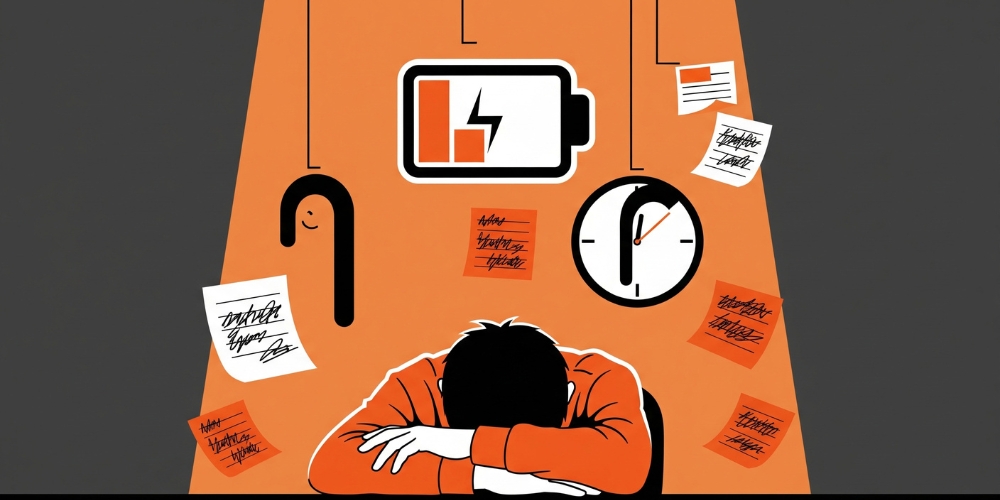
Spotting the warning signs early can be the difference between maintaining balance and crashing into burnout.
Constant Fatigue
Waking up exhausted even after a full night’s sleep? It’s a clear sign your workload is stretching you beyond healthy limits. This often happens to people testing whether is it possible to work two full time jobs without adjusting rest.
Decline in Work Quality
Missing deadlines, forgetting tasks, or slipping in performance across roles may indicate you’ve stretched too thin. Employers might tolerate a lot, but consistently poor results could answer the question of can you work two jobs with a hard “not like this.”
Emotional Instability
Irritability, mood swings, and impatience with coworkers or family often signal mental strain. Left unchecked, it can spill into your relationships outside work.
Health Issues
Frequent headaches, stomach problems, or increased sick days are physical warnings. The Mayo Clinic links chronic stress to higher risks of heart disease, diabetes, and depression. All of these are long-term consequences of poor workload management.
Loss of Motivation
If even a paycheck doesn’t excite you anymore, you’re approaching burnout. It’s especially common for people trying working 2 full time jobs without space for rest or recovery.
Social Withdrawal
Skipping friends, family events, or hobbies to “catch up on work” is a red flag. Work-life balance collapses quickly if every hour revolves around jobs.
Signs You’re Headed Toward Burnout — Self-Test
Work-Life Balance Tips for Dual Job Holders
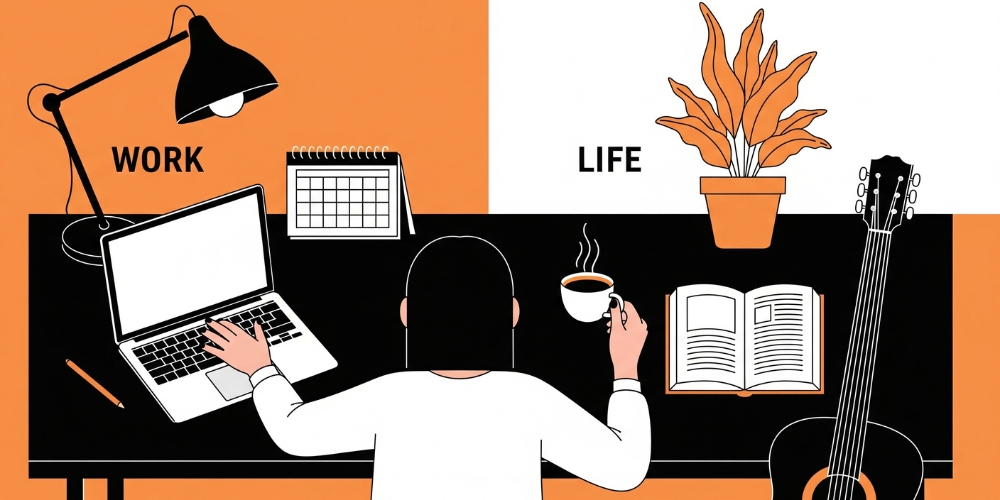
Holding two roles is not just about time management; it’s about life management. Here’s how to make sure your world outside of work doesn’t collapse while figuring out how to work 2 jobs.
Protect Personal Time Like a Meeting
If you don’t set boundaries, your second job will consume every free minute. Schedule time for family, hobbies, or even rest the same way you’d schedule a work shift. Treat it as non-negotiable.
Learn the Art of Saying “No”
When you’re working 2 jobs, extra commitments like volunteering for late-night calls or covering weekend shifts can push you past the tipping point. Saying no protects your energy for what truly matters.
Automate Small Tasks
Household chores like bill payments, grocery deliveries or even laundry pickup can save hours each week. The less time you spend on repetitive errands, the more balance you’ll maintain between roles.
Keep One Job Flexible if Possible
A big secret in how to work two jobs successfully is ensuring one role offers flexibility. Many workers today pick gig roles or freelance projects alongside traditional employment. This not only makes scheduling easier but also reduces the stress of constant time clashes.
Monitor Your Health Consistently
Balance is about wellness. Keep an eye on your diet, sleep, and physical activity. Exercise improves focus and energy even for people under high workload pressure. That’s exactly what dual-job holders need.
Stay Prepared for Transitions
If your plan is temporary, like saving for school or debt, then set a timeline. Knowing when you’ll step back helps prevent burnout and gives you a finish line to work toward. After all, long-term working 2 full time jobs rarely sustains without sacrifices elsewhere.
Work-Life Balance Tips — Balance Challenge
Conclusion
Balancing two jobs is possible, but it requires strategy, self-awarenes,s and discipline. The key is not just asking can you work two jobs at the same time, but whether you can maintain them without breaking down physically or emotionally. Choosing the right mix of roles, setting strict boundaries, and knowing your limits will determine success more than raw effort.
Remember, career growth isn’t only about paychecks. Sometimes stepping back, choosing smarter roles, or preparing for the next opportunity (like brushing up on how to prepare for an interview) matters more than grinding nonstop.
FAQs — Working Two Jobs
Yes, in some cases. If your contract includes a non-compete clause or a rule against outside employment, your employer may have grounds to take action. Always review your HR policies before deciding can you have two jobs.
In most places, yes. There are no general laws against how to have 2 jobs. However, industry-specific rules (like government, defense, or healthcare) may restrict multiple roles. Always check both legal and contractual obligations.
Experts generally recommend not exceeding 55–60 hours a week across both roles. Going beyond that increases the risk of chronic stress, fatigue, and declining performance. The safer approach is pairing how to work 2 part time jobs rather than doubling up on two heavy schedules.
The best pairings balance effort. Examples include remote freelance roles (writing, design, coding) with flexible on-site roles (retail, hospitality, tutoring). The key is avoiding overlap. If one job is mentally draining, choose a second that’s more physical or routine. This keeps both sustainable, rather than forcing you to test is it possible to work two full time jobs indefinitely.

